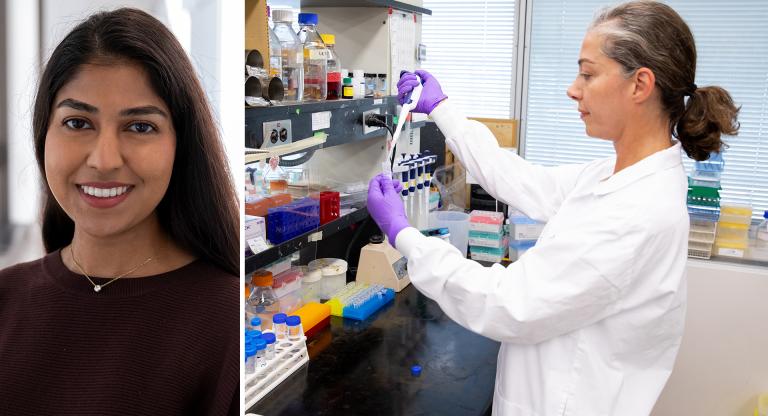Risk of COVID-19 infection highest for baby during early pregnancy, study finds

A developing baby may be most vulnerable for being infected with the virus that causes COVID-19 during early pregnancy compared to later trimesters, according to a new study from Sinai Health.
A team of scientists looked at 87 pregnancies and tested the placenta at various stages for proteins that facilitate transfer of the virus from the mother to the fetus. Their findings were recently published in American Journal of Obstetrics and Gynecology.
Dr. Stephen Lye, executive director of the Alliance for Human Development at Sinai Health’s Lunenfeld-Tanenbaum Research Institute, said they found the protein that allows the virus to enter cells was at relatively high levels in the early stages of pregnancy, but decreased as the pregnancy advanced.
“This study has shown the placenta produces factors that can facilitate transfer of the virus across the placenta,” Lye said. “Our findings suggests the developing fetus may be more vulnerable to infection if the mother is infected in early pregnancy, compared to later trimesters.”
Dr. Stephen Matthews, professor of physiology, obstetrics and gynaecology at the University of Toronto and director of research at the Alliance for Human Development at LTRI, said they also found the factors that facilitate transfer of the virus do not appear to be affected in pregnancy complications such as preterm birth and preeclampsia.
“We did not find any evidence of a high level of these COVID-19 cell entry proteins in patients in preterm labour or preeclampsia, which suggests that these pregnancy complications are not associated with any increased risk of fetal infection compared to normal pregnancy,” said Matthews.
Limited information is currently available on the risk COVID-19 poses to women and their baby if they become infected during pregnancy. There is some evidence the virus that leads to COVID-19 can pass from the mother to the fetus, resulting in infection of the developing baby.
The placenta, which connects the mother to the fetus, provides nutrition, oxygen and serves as a protective barrier for the baby. In order for the virus to get to the fetus, it must pass across the placenta.
“This research helps us to understand the risks of fetal infection should a pregnant woman become infected with the virus that causes COVID-19,” Lye said. “While there are many factors that remain unknown, increased vigilance to protect against infection especially early in pregnancy would seem appropriate.”
The team hopes this information will help in the management of women who are infected with COVID-19 during pregnancy.
This research is funded in part by the Canadian Institutes of Health Research.












